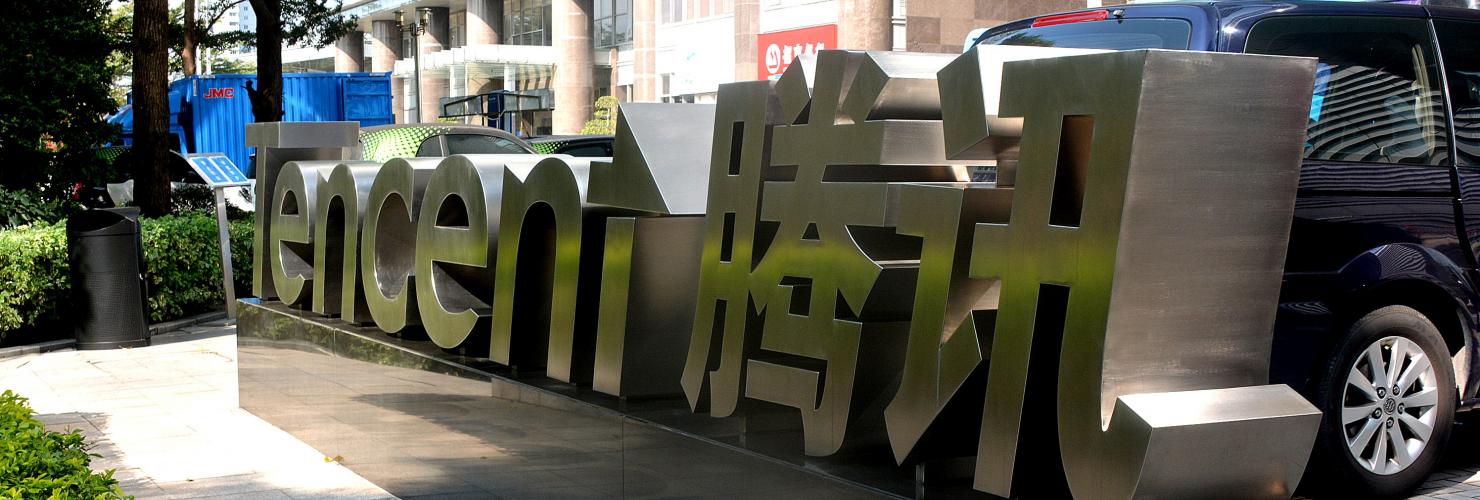

Facing up to China's state-led tech revolution
The success of authoritarian innovation in China challenges liberal market theories. Technological innovation is no longer just driven by Silicon Valley-style capitalism, but also by technocrats in Beijing. China is proving to be a "red swan," as unforeseen as a "black swan" event. Its techno authoritarianism appears well suited for dealing with many megachallenges of the 21st century.
At first glance, leading Chinese internet players like Baidu, Tencent Holdings and Didi Chuxing can look like copies of established US counterparts like Google or Uber. But there is a crucial difference.
The American companies are products of Silicon Valley's cut-and-thrust markets, one of the planet's purest forms of capitalism. By contrast, while the Chinese companies are all privately owned, their rapid growth at home and abroad owes much to the firm hand of the Chinese state.
Indeed, we will have to get used to associating tech innovation not just with spontaneous bursts of creativity and injections of private capital, but also with technocrats in Beijing drafting long-term technological development plans.
It was meant as a wake-up call when former Google CEO Eric Schmidt recently predicted that China could overtake the U.S. in the field of artificial intelligence within a decade. Chinese telecom equipment maker Huawei Technologies is about to roll out 5G mobile broadband networks around the globe. And e-mobility solutions from China's leading internet players were the center of attention at this year's Consumer Electronics Show in Las Vegas.
Can creativity develop under authoritarian rule?
While the internet itself and many other technologies we take for granted now have their roots in the U.S. defense and space programs, we have come to think of creativity and entrepreneurship as linked to open societies and markets. Innovation and authoritarian rule do not seem like a natural pairing. The Soviet Union may have taken the early lead in the space race in the late 1950s and early 1960s but with limited impact on economic or social development.
China censors the internet, intervenes frequently with market mechanisms and demands that even private companies pledge ideological loyalty. Two years ago, many China watchers were embracing the view that authoritarian tightening under President Xi Jinping was producing a dangerous retrenchment that might stifle the country's innovative potential and ultimately undermine its economic success.
Once again, China is challenging us to rethink our assumptions. After the fall of the Soviet Union, many felt the trend toward the political and economic triumph of free-market democracies was irresistible, based partly on advantages in technology development. But China is proving to be a "red swan," as unforeseen as the "black swan" events much discussed over the past decade.
Unlike its former counterparts in Eastern Europe, the Chinese Communist Party has managed to maintain its grip on power while leaving room for policy experimentation at the local level, from market liberalization to administrative modernization and technological innovation. The leadership has allowed bottom-up initiatives to inform central policies, leading to a boost in productivity.
Change of economic model requires indigenous innovation
Maintaining this delicate balance seemed possible as long as growth rates kept rising. But China is reaching the limits of the quantitative growth and poverty-alleviation benefits that can be generated from a manufacturing-based economy. The shift to qualitative growth and a higher-value adding economy requires indigenous innovation.
The conventional wisdom suggests that the constraints of China's system -- from a rigid education system to the lack of the rule of law -- bode ill for this next transformation. But in 2018, China's leaders are no more willing than in 1978 to act according to Western textbooks on economic or political theory. Rather than relaxing control, Xi has re-centralized power and reinforced the Communist Party's grip over the economy and society.
So far at least, Xi's hands-on approach has not seemed to stand in the way of China's ambitious agenda for industrial upgrading and technological innovation. On the contrary, as it turns out, the discipline and obedience of its Leninist "democratic centralism" are a tight fit with many of the internet-driven technologies that Chinese companies have developed over the past few years with generous state support.
Red Swan China now seems better positioned than liberal democracies to deal with the mega-challenges of the 21st century, from climate solutions to smart city management. Many big data-based technologies that are being pioneered in China these days -- from intelligent traffic management to online payment systems -- serve the purposes of enhanced surveillance. The most prominent example is the "social credit system," which rates the trustworthiness of citizens, companies and institutions based on their compliance with economic and social rules, with consequences on everything from loan approvals to access to flights and trains.
China's technological solutions could become an export hit
At the same time, these new tools are attractive not just for authoritarian regimes. The underlying technologies of China's new techno-authoritarianism are exportable and applicable around the world as they address many worries of our age, from mounting security threats to urbanization and environmental pressures.
At a time when public trust in free markets and democratically elected politicians is on the decline even in Western societies, the technological solutions offered by Chinese companies and financiers for addressing concrete social and economic problems appear appealing, especially in developing and emerging countries.
In 2018, just as in 1978, the secret of China's success lies in the combination of long-term priorities and flexible implementation. The difference is that Deng Xiaoping's approach then was experimental and allowed ground-up innovation and thinking outside the box, whereas Xi's focus is purely instrumental: The leadership is striving to concentrate its full energy on optimizing what it is putting inside the box.
In the age of big data and artificial intelligence, a political economy in which the government, IT companies, financiers and consumers jointly push for, or passively facilitate, unrestrained and centralized data collection and processing may turn out to have a systemic advantage. Top-led policy implementation boosted by large-scale data processing could have an edge in economic competition with decentralized and fragmented democratic rule-of-law systems with their privacy, transparency and competition concerns in the transition toward a digital civilization.
As liberal democracies around the world struggle with political and social crises, Beijing has decided what it wants China to be: a high-tech superpower that emphasizes hierarchy and discipline over the perceived chaos of free markets and societies. If liberal political and economic systems do not find a way to reinvigorate their problem-solving capacities, social cohesion, and international credibility and appeal, they could find themselves on the losing end of economic, technological and eventually global systemic competition with China.
This blogpost is based on the book, "Red Swan: How unorthodox policy making facilitated China's rise," by Sebastian Heilmann, published by the The Chinese University Press in January 2018.
The article was first published by Nikkei Asian Review on May 2, 2018.
